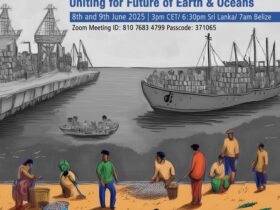Statement made by: International Collective in Support of Fishworkers (ICSF)
Made at: Thirteenth Session of the FAO Sub-Committee on Fisheries – Trade. Hyderabad, India, 20-24 February 2012.
Agenda Item 5: Value Chain Analysis and International Trade
ICSF would like to express its appreciation for the background paper that the FAO Secretariat has provided on this agenda item.
ICSF supports the need to improve international market access of small-scale producers, however, without leading to any disruption of domestic fish supply, which is, sometimes, essential for nutritional security of the poor. It should also be ensured that the benefits from international market access are not just confined to organized exporters of fish and fishery products, but are translated into better human development of small-scale fish producers as well, and that these benefits contribute to an improvement in the socio-economic well-being of fishing communities.
Towards assisting fishers and fish farmers, especially in the small-scale sector to receive a fair share of export price to their domestic fish supply, we support strengthening fisheries and aquaculture cooperatives, mainly to improve the bargaining power of fishers and fish farmers as highlighted in paragraph 25. In this context, we support the statement made by the distinguished delegate of India.
If fishers and fish farmers, both men and women, are better organized under cooperatives, they can resort to effective auctioning arrangementsto supply their fish catch or farm output to the highest bidder in the export market
Cooperative development is also essential from the perspective of ensuring timely and adequate credit supply to help alleviate exploitation of fishers byunscrupulous merchants and moneylenders. Cooperatives also can become effective conduit for timely market information that can assist fishers and fish farmers to make decisions regarding which market to cater to: whether to target national market or the international market, as we know that in some cases the domestic market pays a higher price than the international market.
Being the International Year of Co-operatives, FAO should undertake a few case studies from Asia, Africa, Latin America, in particular, to illustrate how small-scale fishers’ and fish farmers cooperatives have successfully organized to realize fair price for their fish and fishery products, in relation to export processors and traders.
An example that comes to mind from India is about the cooperative network in the southern state of Kerala under the auspices of the state and private sectorcateringto the needs of small-scale fishers. Chile is another example that comes to mind where artisanal fishers have an effective network of cooperatives that also actively engages with the export market.





Leave a Reply